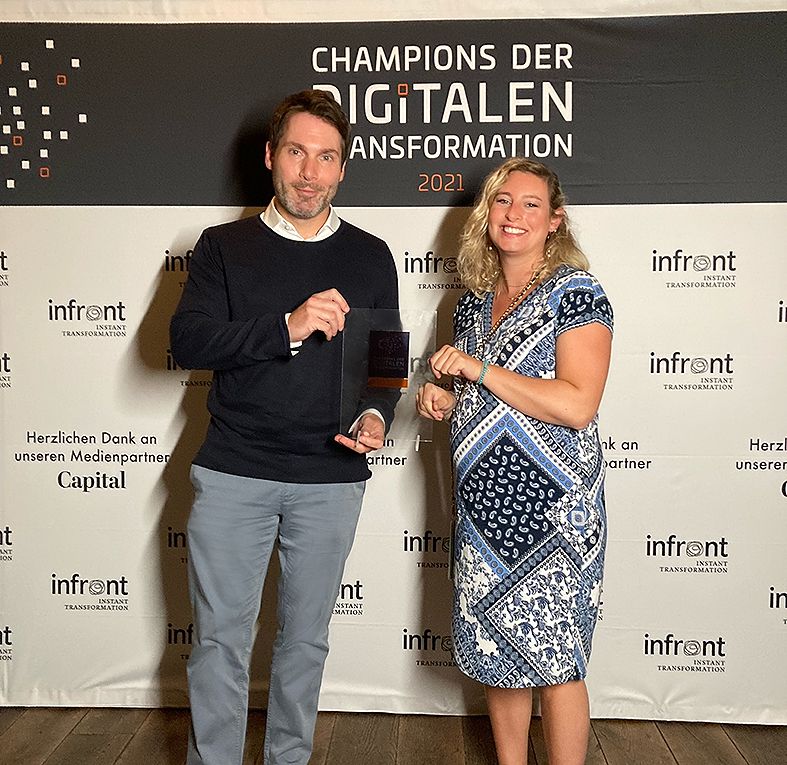The study “Champions of Digital Transformation” examines for the first time the status of digital transformation in the German economy as well as the success characteristics of the most effective transformation programs. For the study, the transformation programs of 127 German companies in eight sectors were examined. The focus was on large companies. At the same time, those companies that have been particularly successful in seizing the opportunities of digitalization were honored. One of the award winners is Xella International GmbH, which took first place in the “Industry” category.
“Digitalization only goes hand in hand with employees who drive it forward. This award recognizes the work of all colleagues who seize the opportunities of digitalization every day and further develop our business model in order to offer our customers the best products and services,” says Michael Leicht, CDO and Head of HR at Xella. “With the help of digitalization, we are able to build more efficiently, more cost-effectively and faster, and also save resources and avoid waste.”
Digital solutions shape the future of construction
Since 2016, digitalization has been an integral part of Xella’s corporate strategy as a top priority. Digitalization is not just a project for the company, but an integral part of the business model. The approach: to combine analogue building materials with digital services such as Building Information Modelling (BIM) or blue.sprint for the benefit of customers.
blue.sprint is Xella's digital planning service and offers all services that make construction projects easier, faster, and more cost-effective right from the start. An interdisciplinary team of Xella specialists provides advice as early as the design phase of the project and helps optimize material selection and alternatives, statics, building physics, and cost-effectiveness for individual needs. Optimized material planning and the individual production of building materials conserve resources and avoid waste.
The study involved qualitative and quantitative analyses through questionnaires and in-depth interviews with the responsible managers. A comprehensive model of digital transformation was used as a basis, which included topics such as organization, culture, employees, infrastructure, data as well as innovation and customer experience and considered differentiated digitalization goals from automation to platforms.
Success factors of digital transformation – results of the study:
● The best companies adapt their transformation programs faster and more effectively to lessons learned.
● The best companies also view the digital transformation as an agile transformation that is carried out within the core organization.
● The best succeed in optimizing their offerings based on data and in offering customers a better digital customer experience.
● The best are more active in recruiting digital talent and invest specifically in the training of affinity employees.
● The best engage their customers more effectively in optimizing digital products and services.
● The best have a clear view of the differentiating digital value proposition of their own company and outsource other digital activities.
